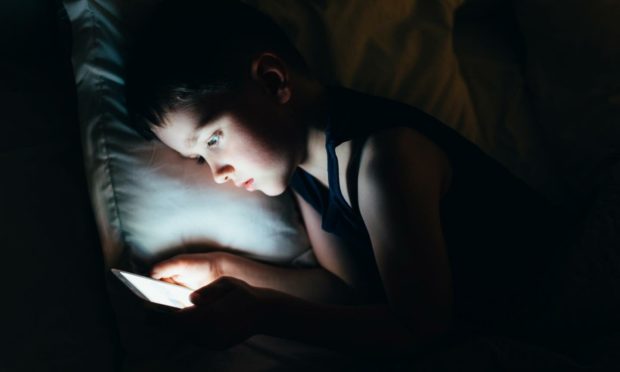In the past five years, sexual grooming offences committed over the internet have increased by 80% in Scotland, with 2020/21 figures reaching an all-time high.
Worryingly, the greatest rise has been seen in crimes against children under the age of 13.
It is the failings of tech firms that are resulting in these record numbers, and it needs to stop. In the past, children could travel in a car without wearing a seatbelt, but the law was changed to protect them. Why should children’s safety be any different online?
“We need to make sure children have a voice – with a powerful champion to represent them and guarantee their needs aren’t drowned out by big tech companies
The UK Government has recently introduced an Online Safety Bill to deal with digital harms, including those faced by children. However, as it stands, the draft bill falls significantly short in its plans to regulate social media to protect children from preventable online abuse.
Proposed Online Safety Bill is not fit for purpose
At the NSPCC, we believe the bill will only work to protect children if it does a number of things.
It needs to stop sexual grooming and abuse spreading between apps. Children use many apps every day to socialise and play games. But so do abusers, who can easily become a child’s “friend” and follow them, as well as trace them from app to app.
In the Online Safety Bill, we need to see the regulator, Ofcom, require companies to proactively share information about offenders, threats to children’s safety and new features that could lead to child abuse.
The bill will make tech companies responsible for spotting risks to children’s safety on their platforms, and companies that don’t do this could be subject to fines. But we don’t think this goes far enough.
We want the UK Government to amend the bill so that it properly holds to account the senior managers who decide how safely their sites and apps are designed. Where they allow serious crimes against children to happen on their platforms, it’s only right that tech bosses be subject to the toughest criminal penalties.
Children must be heard
The bill also needs to make sure that children are heard when they say they are being harmed online. During last year’s Covid-19 lockdowns, our NSPCC helpline saw a 60% increase in contacts from people worried about child sexual abuse happening online.
We need to make sure children have a voice – with a powerful champion to represent them and guarantee their needs aren’t drowned out by big tech companies.
Right now, there is nothing in the bill to make sure children are heard. And it’s simply not good enough for children who have experienced or are at risk of abuse to be denied that powerful voice.
To support us in our campaign to create an online safety law that truly protects children visit: nspcc.org.uk/support-us/campaigns/end-child-abuse-online
Joanna Barrett is NSPCC Associate Head of Policy (Devolved Nations)
